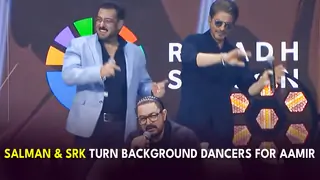Alright this topic is on the justification of physical need. Naturally since physical need is a component of marriage the topic has led to a discussion on marriage and marriage for teenagers. There have been a lot of interesting points raised. However, I do not think all these points are exactly accurate, nor do they genuinely support some of the arguments being raised. I'm going to address a lot of points raised.
Let me begin with the basics. Physical needs is a natural and normal aspect of being human. On its own it needs no justification, it simply is a part of human nature. However, the means of fulfilling these needs can be questioned and may need to be justified. We have already touched upon adultery, rape and abuse in the early part of the topic. I'm going to focus on the newer issues raised like teenage marriage and age of consent.
As I have stated before, I am a libertarian; I do not believe in trying to impose one universal moral on everyone or judging in terms of absolutes. To me physical intimacy is something that should take place when people are genuinely ready for it and want to include that form of intimacy as a part of their life and relationships. It is not dependent on marital status, or age; but more on the individual. I mentioned in another topic, even married people may feel not ready for this level of intimacy till they know each other better. Sometimes even people in their twenties, thirties or forties can feel not ready; while a young teenager can actually be mature and willing to consciously take that step.
However, I still do feel that age of consent laws and marriage age are imperative in our society. Most countries have a marriage age set at 18. Perhaps not absolutely perfect (there are always exceptions), I think 18 is a good benchmark for the transition from teenage to adulthood. In fact I am of the opinion that age of marriage can be increased to 21 or even 23. There are way too many people marrying when they are not ready and should not be marrying (of course it's a personal perception). I come from a generation where more and more people are waiting to get married. In fact barring a few, most of my classmates are still unmarried and content with it. There are certain important decisions that ought not to be rushed. I understand that these are just personal perceptions and do not always cut it out to form a valid argument, so I need something more concrete.
There are certain US states and countries that do allow teenage marriage (usually 15/16) as long as they receive parental consent and/or counseling. In fact there are many constituencies around the world that require marriage counseling to allow any form of marriage. It may appear intrusive, but it is definitely fair and non discriminatory on behalf of the state. It should be noted that the counseling does not ever deny permission to marry if people are incompatible. It just gives people a final checkpoint before making the commitment and a chance to reconsider. I mention this to emphasize the fact that marriage is a long term commitment, it is a complex relationship unlike any other relationship and not something that should be lightly entered into.
Now let me address some of the arguments used to propose marriage for teenagers. Being a topic on physical needs, the primary argument proposed in favor of teenage marriage is teenage sexuality.
Of course the teenage period is one of the most volatile period of change and growth in a person's life. The sex hormones kick in and teenagers experience sexual curiosity and desire, a new feeling that they have not experienced before. For many teenagers in this world it means indulgence in teenage sex, teenage pregnancy and po*nography. However, this phase of teenage sexuality in no way justifies teenage marriage. It does not follow.
Let us take po*nography. It is true that majority of this is consumed by teenagers. A lot of young boys as young as 12 or 13 have accessed po*n. Most are usually taken aback by the experience and do not rewatch it for a significant time. It is not until late teens, high school and college does po*n become a habit. As for girls, it cannot be said that girls never watch po*n. A lot will access it out of sheer curiosity. However, psychologically it does not suit female tastes. It is too graphic and blatant. In fact in recent times many makers have attempted to shift to subtle erotic styles to suit female tastes. Women tend to prefer literary smut. Romantic literature laced with erotica. Even the graphic stuff is preferred in words leaving it up to the imagination so it can be as explicit or mild as the woman prefers.
The problem with po*nography is that this is mere fiction. It is a glorification of sex. Plot and story is intentionally compromised. Many genres even include glorification of rape and abuse. It portrays sex in an unhealthy manner. Allowing teenage marriage does not solve the issue of teenage po*n consumption. Marriage does not alter po*n consumption. As a matter of fact it is known to intensify it and if the spouse is not too pleased with it, people do watch it on the sly. So it is absurd to assume that teenage marriage will prove as a healthy alternative to po*nography. In fact the teen who is in the habit will continue to watch it or in some cases start to watch it. It does nothing about the po*n phase. Also considering the impressionable state of the teenage mind, the teen may actually feel that po*nographic recreations of rough or abusive sex is alright in their marriage or that infidelity, experimentation, risky behavior, group sex is something that adds spice to the marriage. (mind you I do not condone moral judgment of sexuality, but I think such choices cannot be made unless the person has been allowed the capacity to grow and choose)
Clearly marriage as a means to resolve or serve as an alternative to po*nography is a dangerous proposal, especially in a case of unhealthy po*n exposure. Dangerous to the sanctity of marriage as well as the people involved. What is imperative here is wholesome sex education. An environment where teenagers can learn about their sexuality in an informative factual manner. An environment where parents, teachers and mentors instill values, information, tools to make choices so that teenagers can grow up to make sexual choices that are right for them in the long term. Research on po*nography has shown that po*nography is not a societal problem. Many people watch it and most fit in society like anyone else. Ignorance is more dangerous than anything else.
Next coming to teenage sex. Of course it is entirely plausible that two teenagers may either be in a genuine relationship that is physically and emotionally intimate or engage in sex fully aware of it with the thoughtfulness of an adult. However, studies on teenage sex have shown that commitment, love, or as a matter of fact even desire to have sex have not been the driving factor for teenage sex. A lot of teenage sex occurs for varying reasons like boredom, frustration, rebellion, peer pressure or loss of self control moments. Teenagers are either bored/frustrated with the way their family treats them or does not understand there or merely want to rebel against their parent's/teacher's overbearing natures and break rules and engage in a societal taboo. Many teenagers feel they have to do it because their peers are doing it and prove their sexuality. Then there is always the moments when teenagers are unable to handle themselves during physical intimacy that they end up doing something when they really did not want to. Then there is always the drunken or high mistake, that happens to anyone.
Clearly, marriage does not fix the problem of teenage sex. The teenagers may get married. But unless married for the right reasons, the sex will not be for marriage – but for all the wrong reasons – which does not constitute a healthy marriage. The continue the physical expression of sex, but the meaning of the act remains limited. Again sex education and strong families and communities are the key. Teenagers need not have perfect families, but communicative parents, a supportive network of friends, who assist them in right choices.
Coming to teenage pregnancies. Studies conducted on teenage pregnancies have shown two primary reasons for teenage pregnancy. One was ignorance for safe sex practices and contraception. But an alarmingly high number of teenage pregnancies were intentional too. Many wanted to conceive a child so that they would have someone to love and love them back. Some felt this was a way they could get their boyfriends to stick by them, or that they would have something when their men left them. Some even felt that conceiving would make up for lack of parental care or friends. Some feel that having children will compel people to treat them like a grown up.
In the second case of intentional teenage pregnancies, marriage definitely is not the solution. These teens are clearly in a position where they do not fully understand relationships and have shaky perceptions of love and responsibility. Before marriage self image and relationship perception has to be improved. Another thing is that if a person is not treated by everyone as a grown up, they are not acting mature enough to be a grown up.
In the case of accidental pregnancies marriage is a poor fix. It is like using flimsy tape to fix up a shattered pot. It is a weak and superficial solution. Statistics show that teens who were either pressured by family or society or even willingly chose to marry upon getting pregnant – continued to have children. They dropped out of high school/college to look after their children. Their households were low income, their children were often neglected by parents who worked multiple jobs to make ends meet and resorted to alcoholism to relieve stress. Many marriages which ended shortly and led to single parents. Thus creating endless loops of high school drop out and teen parents. Almost all regretting their choices and wishing they could go back and focus on other things like education and achievements as teens.
The proposition that Europe and some US states are opening up to teenage marriage is a completely incorrect one. The legal age of marriage in most of North America and almost all of Europe (including the Eastern European countries where age of consent can be as low as 12-13) is 18. Of course many allow under 18 marriages with counseling/consent, which I mentioned earlier as a reasonable compromise if people really feel they need to get married. The sexual liberalization of Europe should not be considered as supportive of teen marriage. Most European nations after the alarming increase of teenage sexuality and pregnancy have been able to note the causes and consequences. So unlike the United States which still tends to push an abstinence agenda, has focused on sex education, making contraception easily available as well as providing resources for emotional health of teens. So interestingly France, Belgium, Netherlands some of the more liberal European countries in terms of sex, have lesser teen pregnancies, lesser cases of teen date rape and abuse, actually healthier and longer teen relationships and have a median marriage age ranging from 27-35 (definitely not teen) Compare to median of 25-28 in North America and median of 20-25 in Asia (note these are legally recorded marriage, illegal and informal marriages not noted) Sweden happens to be a statistical anomaly as Swedish society seems to be shifting away from marriage. Most Swedish couples are not married, which is why even live ins receive almost the same rights as marriage and some statistics even count live ins as marriages because there is really no major difference other than ceremonial commitments.
Finally the most important aspect that most people have emphasized is that sex is not the sole factor that determines marriage. (speaking of which sexual peak is not till thirties for women and twenties for men) Even if this topic is on physical need, it does not justify the leap from sexual need to marriage. Marriage is a long term commitment. It requires maturity, compromise and a lot of effort from both sides. Even if the physical need is complimented by a romantic notion of love and emotional intimacy it does not justify hasty marriage.
Since I do not want it to be assumed that everything is based on personal perception. Let me illustrate the most widely accepted illustration of psychology. Abraham Maslow's hierarchy of needs. Basal human needs are physical, shelter, clothing, food, physical touch. The next level of human needs are security, not just physical safety but emotional security of love and relationships. However, the highest level of human need is self actualization. A human is never truly happy or satisfied until they have the opportunity to realize themselves.
Teenagers no matter how mature are still shaping their world view. Their mind is constantly developing forming new ideas and perceptions. Studies show that the most people do not settle on their personalities, career goals, life aspirations until the ages of 21-25. With the more options and opportunities presented to both genders this age can be pushed further. Also both men and women prefer to be personally well adjusted and settled, fulfilling basic education and career goals before committing to marriage. Most people will attest that their personalities as a teen is nowhere to what they are today. Their expectations and aspirations out of people, relationship and marriage as a teen is not what they were today. Even those who end up marrying high school sweethearts retrospectively are happier that they waited or were made to wait instead of plunging in the deep end right away.
Two teenage people may genuinely be in love and mature for marriage. However, by the time they are finished growing their personalities will be so radically different that they become completely different people. Over time they may discover that their aspirations from life, their needs in a relationship, their career goals, where they want to live, the type of families they desire are completely different.
It is often known that in younger, earlier, teenage relationships – people define themselves through the other person, they lose their self identity and there is an urge to merge as one personality. People often complain of clingy young couples who are unrealistically into each other. On the other hand older more mature couples are very comfortable in their differences, able to give each other space and still share a romantic bond and common interests.
It is definitely not necessary that all teenage couples grow apart, many do grow closer. But there is always the risk that they will smother each other and not allow each other to grow. There is always a risk that they will lose their identity and suppress their desires and aspirations. There is the risk that they will not be a successful couple, parents or family. Of course being older does not guarantee success of a marriage by any means. However, it does allow people to grow, people to have the opportunity to actualize who they are, and engage in marriage when they are at a better place in life. It also protects people from eventually feeling left behind or disconnect from the rest of their generation.
The 18 years old for marriage may seem restrictive for people who wish they could have gotten married earlier, or some love stricken teenagers. Its easy to speak things from a newly wed, young or sexual perspective. Real life is not limited to myopic perspectives. Legal marriage age of 18 protects immature teenagers from making choices they may regret. It makes teenagers focus on self development, education and other aspects of personal growth – so they can be better prepared for life's responsibilities. The fact is that statistically even if we have exceptions of teenagers ready for marriage, most are still growing emotionally, intellectually and need more room to grow. And even though there are people above 18 who make mistakes, most have done the basics of growing and it comes down to right choices.
Also reducing the legal marriage age can allow many parents who want to force their kids, force the marriage at an earlier age. In India many NGO's feel the marriage age should be increased because even at eighteen girls tend to be pressured by parents into forced marriages. Also some mature 14-17 year old girls in rural areas are passed of as 18 as there is no legal proper documentation of birth. Whereas if the girl was allowed to have more education she would not be as easily coerced and it is harder to pass of teens as a 21 or 23 year old. Actually some people have these concerns in some very religious parts of the states too.
As for the Indian family style where even at 40 the child is munna or munni. I see no harm in that. Even in many western families the parent always sees their child as a child forever. Indians and many other communities tend to be based on collectivism, families are interdependent, close knit and coexist. Western societies are more individual and not as codependent. It is just a difference in societal structure and personal preference.
In fact independence of teenagers to grow into adults is not dependent on marriage. There is much more that can be done. Teenagers are no longer being coddled in India or treated just as kids. Parents in India are ensuring that teenagers are indeed being more responsible. In India many teens are taking on part time jobs and sharing in other responsibilities of running a household like looking after young siblings, chores, fixing things, paying bills etc (things that are part of marriage and family, allowing step by step foundation before taking the big step). In the United States the trend was for parents to support kids, now more and more desi parents to are expecting their kids to contribute towards their education and be responsible on their own. And the reality is responsibility comes before marriage. Not marriage to teach responsibility. Even many European and American families are currently following the system of close knit families, that are codependent and instilling responsibilities through self reliance first. This allows teenagers to grow, but still have the support system they need.
Actually, considering the trend of people marrying later and later in life, I would not be surprised if marriage age gets pushed higher in some places. Especially in regions where there still is risk of forced marriage. Also in today's world where there are so many potential opportunities in life, teenage marriage is an anomaly rather than a norm.































